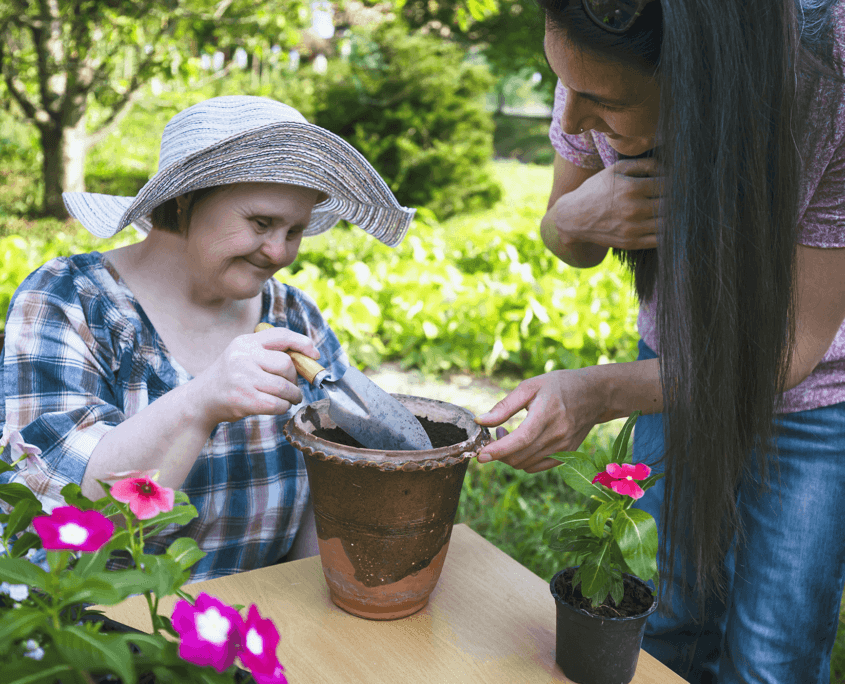Understanding your NDIS supports
March 5, 2020

As someone living with a disability, or a parent or carer of someone with a disability, the National Disability Insurance Scheme (NDIS) can offer lots of opportunities to access the supports needed to live a fulfilling life.
But the NDIS can also be complicated to understand. For someone first entering the NDIS, there are many steps you need to take to have your eligibility assessed. Application forms need to be completed then, if you’re deemed eligible, you meet with the NDIA to create your first plan, define your short-term and long-term goals and decide how you want to manage your plan funding going forwards.
For more information on your options for managing plan funding, click here.
An important part of your journey with the NDIS is the supports included in your plan. Your supports help you work towards achieving your goals, build your independence and improve relationships with your community.
NDIS supports are broken down into three categories. Core supports, capital supports and capacity building supports.
Core Supports
Your core budget is for supports that help you in your day-to-day life. These are designed to develop your fundamental life skills and help with your participation in daily community activities. There are four main NDIS Core Supports.
- Assistance with Daily Living – these supports are for assistance with your daily tasks such as cleaning, cooking and dressing. The aim of these supports are for you to be able to live as independently as possible.
- Transport – help with transport costs for you to get to and from work, school or other community and recreational activities. This could include the use of a taxi service or public transport, depending on your requirements.
- Consumables – for assistive, safety and personal care items such as equipment, nutrition and medical products and specialised clothing. This does not include the cost of medications.
- Social & Community Participation – to help you become more involved in your community. This could include social and recreational activities.
Capital Supports
Capital supports are for large expenses that aid in your progression towards your goals for a longer period. Often ‘one-off’ investments, capital supports help build your independence and usually need to be approved by the NDIA before they can be purchased. There are two categories for NDIS Capital Supports.
- Assistive Technology – includes funds for items such as wheelchairs, vehicle modifications, standing frames, vision equipment and assistive devices for bathrooms and kitchens.
- Home Modifications – funds for these supports are not flexible and must be used as per your plan. Home modifications could include handrails or ramps that help enable you to live more independently in your home.
Capacity-building Supports
There are a wide range of capacity-building supports that may be covered by the NDIS, depending on your disability and individual goals. This category of supports is focused on helping to build your independence and skills. Capacity-building supports are an important part of working towards your long-term goals.
The categories for NDIS Capacity-building Supports are:
- NDIS Support Coordination – assistance in understanding how your plan works. Support Coordinators at Disability Plan Services help to connect you with local supports that suit your needs, help you to navigate the NDIS and resolve any issues you may have. Click here to learn more about Support Coordination.
- Improved Living Arrangements – help in finding and securing appropriate accommodation for you. This may include support with property inspections and negotiating lease terms.
- Increased Social and Community Participation – funds to support your participation in community activities such as sports coaching or classes to help build your skills and independence.
- Finding and Keeping a Job – an important part of many NDIS plans, this category supports you to find, obtain and keep employment such as resume assistance and support at interviews.
- Improved Relationships – funds supports like behavioural therapy and psychology to assist you in making positive changes in your life that improve the quality of your relationships.
- Improved Health and Wellbeing – help to maintain or increase your physical mobility and wellbeing with supports such as dietitians, exercise physiologists and personal trainers.
- Improved Learning – assistance with transitioning from school to further education or supports with skills training, advice and help with applications.
Improved Life Choices – helps to build your financial and organisational skills. Improved Life Choices also includes funding for Plan Management. Disability Plan Services offer Plan Management to assist with keeping track of your plan funding and paying service providers. Find out more about Plan Management here.
- Improved Daily Living – Helps to fund the development of basic skills through activities such as physiotherapy, occupational therapy, speech therapy and early childhood intervention. These supports help you to get more out of your day-to-day life.
To find out more about how your NDIS plan works and what funding you’re entitled to receive within your plan, speak to the team at Disability Plan Services. Our experienced NDIS Support Coordinators and Plan Managers can help you to understand your plan and get the most out of the funding available.
Copyright © 2022 Disability Plan Services
Call Us
 Debunking Common Myths about Supports the NDIS will fund
Debunking Common Myths about Supports the NDIS will fund 
